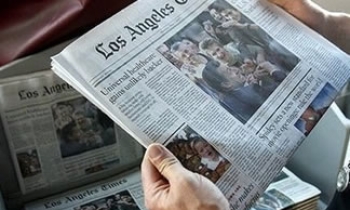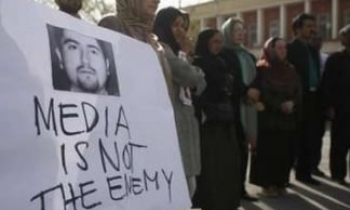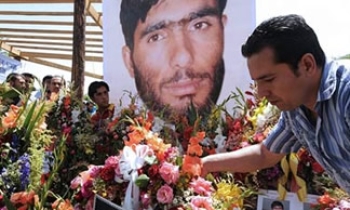WASHINGTON – Army officials this week issued new warnings to soldiers
about posting personal stories from combat zones on the Internet and
taking photos at overseas bases, saying those actions could jeopardize troops’ security.
The list of prohibited activities includes taking photos of Defense Department facilities, posting any official Defense Department information and releasing information detailing job responsibilities.
"Whether it is a family Web page or a personal blog, safety and security measures must be strictly observed," the message said. "Sensitive DOD information must not be divulged to the public at large for national security reasons."
The message also notes that even some unclassified information "may
not be appropriate for use on the Web" and directs all other questions related to prohibited activities to security managers.
Army spokesman Paul Boyce said the goal isn’t to prevent soldiers
from writing about their time in a combat zone, and said he knew of
no discussions considering shutting down blog sites or banning the
use of personal cameras. But Boyce said soldiers need to know that simply taking photos could threaten operational security.
"We’re just re-emphasizing the danger here," he said. "We have warned soldiers to please be extremely careful of any photography,
especially street scenes, because they could be useful to the enemy."
Boyce said shots of the aftermath of insurgent attacks or roadside
bombs are especially dangerous, because insurgents could use them to
gauge the effectiveness of their attacks.
Officials said the new guidelines were designed to be a reminder to
troops and were not prompted by news this week of a Web site offering
free access to pornography in exchange for gruesome war photos.
Last month, Army Chief of Staff Gen. Peter J. Schoomaker released a
memo to unit commanders telling them to take the issue more seriously.
"The enemy aggressively reads’ our open source and continues to
exploit such information for use against our forces," he wrote. "Some
soldiers continue to post sensitive information to Internet Web sites
and blogs.
Such OPSEC violations needlessly place lives at risk and
degrade the effectiveness of our operations."
Under current Army rules, soldier bloggers are required to register
their sites with commanding officers, who have the authority to them
shut down if they deem them problematic.
Sgt. Todd Kobus, who runs the blog site LostInIraq.com to chronicle
his Massachusetts Army National Guard unit’s activities there, said
he has been confused and aggravated by Army’s guidelines that have
limited what he can write about the troops’ lives overseas.
"They have managed to keep everything extremely vague," he said in an
e-mail from Iraq. "The site hardly serves its original task of
keeping family and friends informed of anything, aside from the prank
wars that occur on the base."
Kobus said he understands the need for security and has taken many
steps to make sure his site doesn’t pose security risks, doing things
like blotting out Iraqi troops’ faces in photos. But he still fields
complaints from superiors worried about photos and stories on the site.
"All this is pretty frustrating since I have kept my site positive
during the entire deployment, have never intentionally violated that
giant gray area known as OPSEC," he said.
The Army has also issued rules about appropriate e-mail use in the
past, warning about revealing secure information in personal notes as
well as discouraging anything that could "reflect adversely on the
DOD or the Army," referring to things like chain letters or pornography.









